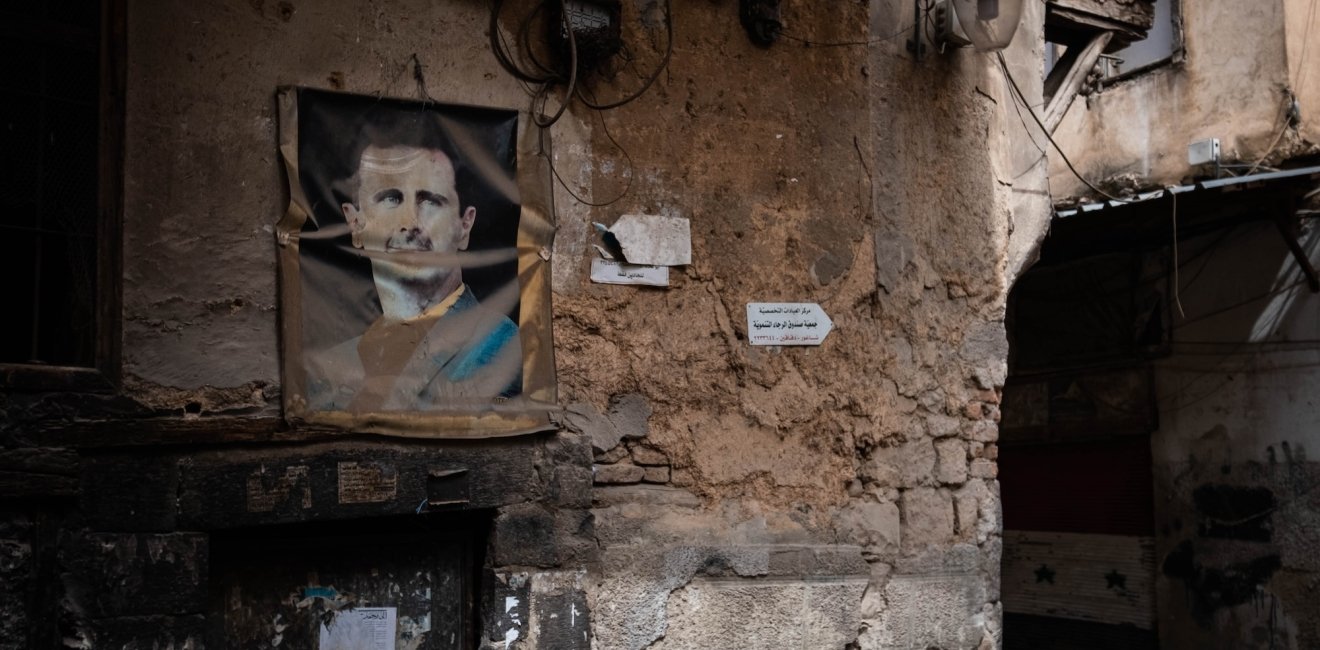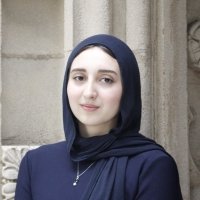Algeria
In a written statement, the Algerian Foreign Ministry expressed its firm opposition to Israel's recent action, which it described as a violation of Syria’s sovereignty. "Algeria strongly condemns the Zionist entity’s [Israel] decision to terminate the Disengagement of Forces Agreement and seize the buffer zone in the occupied Golan, thus violating Syria’s sovereignty, and launching attacks on its territory."
Bahrain
Bahrain’s ruler, Hamad bin Isa Al Khalifa, has expressed readiness to cooperate with Syria’s new government after the overthrow of the Assad regime. The King sent a letter to Hayat Tahrir al-Sham (HTS) leader Ahmed al-Sharaa, telling him the Gulf kingdom was ready to work with Syria’s new authorities. This makes Khalifa the first Arab leader to communicate with Sharaa following the lightning rebel offensive that saw Damascus captured last Sunday. Khalifa stressed the importance of "preserving Syria's territorial integrity, safety and stability and responding to the aspirations of its people." He also expressed hope that Syria would return to its "authentic role in the Arab League."
Egypt
The Egyptian Foreign Ministry noted that it was following the situation with great care, affirming its support for the Syrian people and the country’s sovereignty and unity. It also condemned Israel’s “further occupation of Syrian lands.”
Iraq
Prior to December 8, Prime Minister Mohammed Shia al-Sudani, expressed deep concern in relation to the developments in Syria. He stated, "what is happening in Syria today is in the interest of the Zionist entity [Israel], which deliberately bombed Syrian army sites in a way that paved the way for terrorist groups to control additional areas in Syria."
In another statement, he reflected on the hardships Iraq faced and anticipated going down this path will yield the same results in Syria. "Iraq will not just stand still in the face of the grave repercussions unfolding in Syria, particularly acts of ethnic cleansing targeting various components and sects. Having suffered from terrorism and the fallout of extremist groups, Iraq cannot allow a repeat of such devastation."
In his most recent statement, he stressed that "Iraq is continuing intensive diplomatic efforts with the aim of containing the crisis in Syria due to its clear impact on Iraqi security." He emphasized, "Iraq's official, fixed stance is in support of Syria's unity, security and stability."
Al-Sudani has not commented on the situation after December 8.
Following Israel’s seizure of land in Syria near the occupied Golan Heights the Iraqi Ministry of Foreign Affairs affirmed in a statement that Iraq “stresses the importance of maintaining Syria’s sovereignty and integrity and calls on the UN Security Council to uphold its responsibility and condemn this aggression … and put an end to it.”
Iran
Iran’s President Masoud Pezeshkian said that the Syrian people are the ones who have the right to decide their country’s governing system. In a cabinet meeting, Pezeshkian emphasized the necessity of preserving unity, sovereignty, and territorial integrity of Syria, stating that it is the Syrian people who must decide the future of their country and its political system. He highlighted the importance of dialogue among various segments of Syrian society to achieve understanding. He also expressed hope that military conflict and violence would end as soon as possible, allowing the Syrian people to make decisions in a peaceful environment, free from violence, concerns, or destructive external interference. He also emphasized the significance of ensuring the security of all Syrian citizens, protecting holy sites, and safeguarding diplomatic and consular missions in accordance with international law. Moreover, the president stressed the continuation of the Islamic Republic’s diplomatic consultations with relevant parties and the United Nations to help stabilize the situation and maintain stability and security in the region. He categorically condemned the actions of Israel in violating Syrian territorial integrity. He also called on all Syrian parties as well as neighboring states to be vigilant about Israel’s misuse of the situation to further its expansionist and illegal policies regarding regional nations.
Iran’s foreign minister, Seyed Abbas Araghchi, in a post on social media platform X, condemned Israel’s extended assaults in Syria since the fall of the government in Damascus over the weekend. “The Israeli regime has moved to destroy almost every defense-related as well as civilian infrastructure in Syria,” he wrote.
On a phone conversation with his Qatari counterpart, Sheikh Mohammed bin Abdulrahman Al Thani, to discuss regional developments, with a particular focus on Syria and other issues of mutual interest, Foreign Minister Araghchi discussed and exchanged views on continuing bilateral and multilateral talks on the developments in Syria to help establish a comprehensive political system in the country that reflects the will of the Syrian people.
The IRGC, in a statement on its official news outlet, Sepah News, accused the United States and Israel of exploiting the current instability to target Syria's vital centers and interfere in the country's internal affairs.
Israel
Prime Minister Benjamin Netanyahu said, “This is a historic day for the Middle East. The collapse of the Assad regime, the tyranny in Damascus, offers great opportunity but also is fraught with significant dangers. This collapse is the direct result of our forceful action against Hezbollah and Iran, Assad's main supporters. It set off a chain reaction of all those who want to free themselves from this tyranny and its oppression."
He emphasized how this moment "also means that we have to take action against possible threats. One of them is the collapse of the Separation of Forces Agreement from 1974 between Israel and Syria. This agreement held for 50 years. Last night, it collapsed," he continued. "The Syrian army abandoned its positions. We gave the Israeli army the order to take over these positions to ensure that no hostile force embeds itself right next to the border of Israel. This is a temporary defensive position until a suitable arrangement is found."
On the political process in Syria and its future, Netanyahu noted that Israel “sends a hand of peace to all those beyond our border in Syria: to the Druze, to the Kurds, to the Christians, and to the Muslims who want to live in peace with Israel. We're going to follow events very carefully. If we can establish neighborly relations and peaceful relations with the new forces emerging in Syria, that's our desire. But if we do not, we will do whatever it takes to defend the State of Israel and the border of Israel."
And while he said Israel has “no intention of interfering in the internal affairs of Syria,” he added that his country will “certainly do what is necessary to ensure our security,” especially if “this regime allows Iran to reestablish itself in Syria, or allows the transfer of Iranian weapons or any other weapons to Hezbollah, or attacks us, we will respond forcefully and we will exact a heavy price from it.”
Jordan
King Abdullah II of Jordan "reaffirmed Jordan's respect" for "the Syrian people's choices, stressing the need to safeguard Syria's security and the safety of its citizens," a palace statement said. While chairing a meeting of the National Security Council, King Abdullah II stressed “the necessity of protecting the security of Syria, its citizens, and the achievements of its people, and working diligently and quickly to impose stability and avoid any conflict that might lead to chaos.” He added, "Jordan has always stood by the Syrian brothers since the beginning of the crisis and opened its doors to refugees during the past decade, providing them with various services, including health, education, and others, just like the Jordanians."
FM Ayman Safadi reiterated Jordan’s support for the Syrian people and his country’s readiness to provide “all possible support to the Syrian people in their efforts to rebuild their homeland, institutions and political system, in a way that guarantees Syria’s security, sovereignty, freedom and a free and dignified life for all its citizens.” “We will support any political process launched by the Syrian people to build a political system that meets the aspirations of the brotherly Syrian people, preserves their rights, and puts Syria on the path to build a secure and fulfilled future that its brotherly people deserve.”
Kuwait
Kuwait's Ministry of Foreign Affairs stated that it is "monitoring, with great interest, the current developments in the sisterly state of Syria, stressing the necessity of maintaining the country's unity." In a statement issued Sunday, the ministry affirmed the need to respect Syria's independence and sovereignty over its territories and ensure the protection of Syrians and end to bloodshed. The ministry also affirmed Kuwait's support for Syria to achieve stability by preserving its national institutions and dialogue.
Lebanon
A senior Hezbollah leader noted that developments in Syria represent a "major, dangerous and new transformation."
Marc Saad, an official in the foreign relations department for the Lebanese Forces, said, "Finally justice has been made, regardless of the details.”
Lebanese Prime Minister Najib Mikati said that he discussed the situation at the Syrian border in a call with Army Commander Joseph Aoun and security forces chiefs.
Mr. Mikati insisted "in these calls on the priority of tightening control over the border and distancing Lebanon from the repercussions of the developments in Syria," his office said in a statement. On Twitter, Mikati focusedon the Lebanese in Syrian jails and border security with Syria.
The Lebanese army said it was reinforcing its presence on the border with neighboring Syria, after the Assad government fell and rebels took the capital Damascus. "In light of rapid developments and delicate circumstances that the region is going through... units tasked with monitoring and controlling the northern and eastern borders have been reinforced, in conjunction with tightening surveillance measures," the army said in a statement.
Morocco
FM Nasser Bourita stated that Morocco, under the leadership of King Mohammed VI, “has always been clear concerning the preservation of territorial integrity, national sovereignty, and the unity of the Syrian people. This has been and will remain the firm position of the Kingdom of Morocco.” He added, “Morocco hopes that these developments will bring stability to Syria and a better future for the Syrian people.” He concluded stating, “Morocco was against interference in Syria’s internal affairs, just as it is today supporting stability, unity, and the aspirations of the Syrian people to progress.”
Oman
Oman condemned Israel’s continued military bombardments of Damascus and other areas, alongside its occupation of new parts of Syrian territory within the buffer zone, which constitutes a clear violation of the Disengagement of Forces Agreement.
Palestine
The Palestinian Authority reiterated it is “respecting (the Syrian people’s) will and political choices, in a way that guarantees their security and stability and preserves their achievements.” The Palestinian presidency added in a statement that it affirms “the need to respect the unity, sovereignty and territorial integrity of the Syrian Arab Republic, and to preserve its security and stability, wishing continued progress and prosperity for the brotherly Syrian people.”
Hamas, in a statement that surprised many, expressed congratulations to the Syrian people for achieving their “aspirations for freedom and justice” with the fall of Assad, adding that they “call on all segments of the Syrian people to unite, strengthen national solidarity, and rise above the pains of the past.”
Qatar
The Qatari Ministry of Foreign Affairs said Doha considers the Israeli incursion “a dangerous development and a blatant attack on Syria’s sovereignty and unity as well as a flagrant violation of international law”.
Adviser to the Prime Minister and Official Spokesperson of the Ministry of Foreign Affairs, Dr. Majid bin Mohammed Al Ansari affirmed Qatar’s support for the Syrian people: "The brothers in Syria are the ones who determine Qatar's next role in Syria. We support the Syrian people, and Qatar's doors are open to all parties, and we communicate with all parties in Syria."
In a phone conversation with his Iranian counterpart, Seyed Abbas Araghchi, Sheikh Mohammed bin Abdulrahman Al Thani discussed regional developments, with a particular focus on Syria and other issues of mutual interest. They exchanged views on continuing bilateral and multilateral talks on the developments in Syria to help establish a comprehensive political system in the country that reflects the will of the Syrian people.
Saudi Arabia
The Kingdom of Saudi Arabia’s Foreign Ministry stated that “Israel’s continued violation of the rules of international law and its determination to sabotage Syria’s chances of restoring its security, stability and territorial integrity.” The kingdom’s Foreign Ministry also called on the international community to denounce the Israeli campaign, stressing that the Golan Heights is an occupied Arab territory.
Tunisia
The Tunisian Foreign Ministry issued a statement stressing “the need to ensure the security of the Syrian people and to preserve the Syrian state as a unified and fully sovereign state in order to protect it from the danger of chaos, fragmentation and occupation and to reject any foreign interference in its affairs." Tunisia also expressed “its absolute solidarity with the brotherly Syrian people, who have deep fraternal ties with the Tunisian people."
Turkey
Turkish President Recep Tayyip Erdoğan voiced hope that the new, post-Assad administration in Syria continues with an approach that “encompasses and embraces all sectors” of the Syrian people, during a speech at the 15th Ambassadors' Conference on December 10. He believes that Turkey’s “Syrian brothers who won their fight against a bloodstained, tyrannical regime” will be successful.. Turning to ties between Turkey and Iraq, he said that Ankara sees Iraq’s territorial integrity and sovereignty as “extremely important.” He stressed that the countries' joint fight against the PKK, which threatens their security and survival, will continue. The president also reaffirmed Turkey’s determination to put an end to the bloodshed in Gaza once and for all, stating, "I say it clearly that the route the Israeli government insists on and obstinately maintains is, in fact, not a true path."
In a discussion with NATO Secretary General Mark Rutte, Erdoğan announced Ankara's readiness to make efforts to free the country from terrorism. He noted, "Syria should be governed by the Syrian people."
Turkish Foreign Minister Hakan Fidan vowed that his country will do everything it can to prevent the PKK and Islamic State from taking advantage of the situation in Syria following the collapse of Syrian President Bashar al-Assad's government. Speaking in Qatar, Fidan noted that with the recent developments, the Syrian people will reshape the future of their country, and that the international community must support the Syrian people.
United Arab Emirates
UAE official Anwar Gargash commented on the fall of Assad by blaming the former Syrian president of failing to use a lifeline offered to him. "Now there was a major failure, basically, in part in politics and policy, because Assad did not really use the sort of, you know, lifeline, that was thrown to him by various Arab countries, including the UAE, and did not really use that to open up, to move on to constitutional discussions that were taking place."
Gargash added that the UAE is “very worried about chaos. We're very worried about extremism. We remain worried about the territorial integrity of Syria,” noting further that "we don't know about the shape of developments in Syria. Is this going to be a sort of wiser group that will be able to actually transcend, as I mentioned, Syria's tortured history, or are we going to go back into a reincarnation of radical and terrorist organizations playing a major role?"







